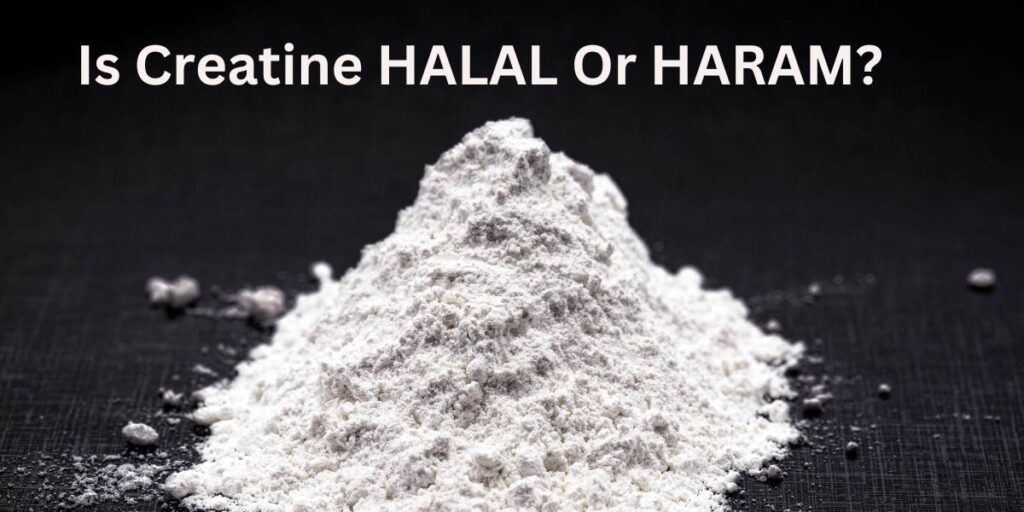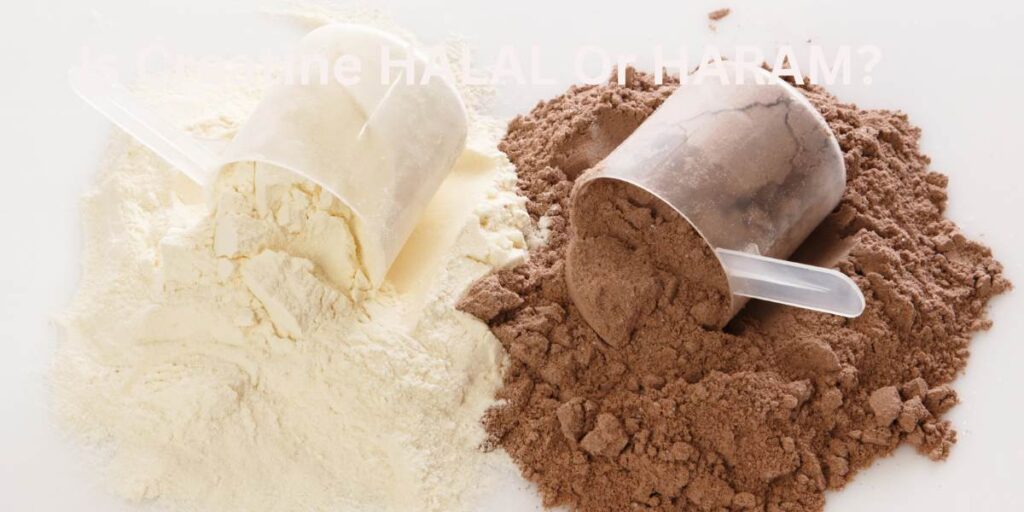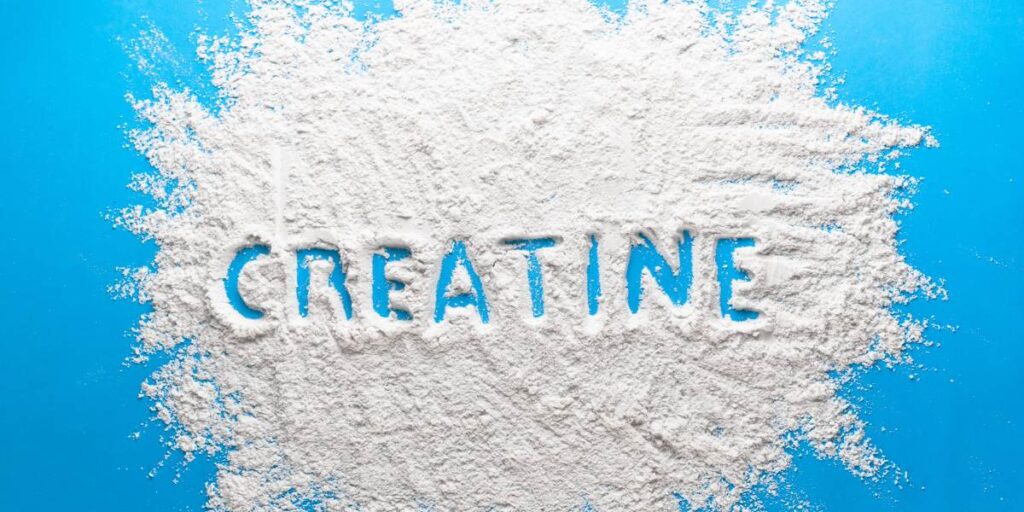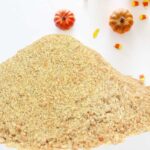Creatine is a naturally occurring chemical in muscle cells that provides energy during high-intensity exercise and heavy lifting. The body produces creatine but can also be consumed through dietary sources like red meat and seafood. Many bodybuilders use creatine as a supplement because it has become a staple for muscle growth and performance.
Is Creatine HALAL Or HARAM?
Yes, creatine is halal if it is made from permissible ingredients. Creatine is a supplement used to boost performance and energy in the gym.
Creatine is not haram as long as the protein powder or creatine product does not contain anything forbidden in Islam.

What are the benefits of creatine?
Creatine boosts muscle energy during high-intensity exercise and aids in adding muscle mass by speeding up muscle growth. It works well with pre-workout supplements, helping to enhance overall performance.
Creatine also benefits neurological health by potentially fighting Parkinson’s disease and may help lower blood sugar levels, offering a range of health advantages.
What Makes a Supplement Halal?
To be lawful and edible, halal supplements must follow Islamic law. They should be free from harmful substances and meet specific conditions. Ingredients need to be carefully sourced and processed.
- No ingredients from pigs, dogs, or predatory animals.
- Avoid alcohol, blood, and poisonous plants.
- Clean machinery and facilities according to Islamic rules.
- No contact with unlawful substances during manufacturing.
Certified halal products meet all requirements.
Halal supplements cost more due to strict Islamic guidelines. These rules ensure the products are safe and permissible to consume.
Halal supplements might be more expensive because of strict Islamic standards. These conditions guarantee that the supplements are safe and permissible for use.
Are there any natural sources of creatine?
Creatine is naturally found in red meat, chicken, and dairy. Including Omega 3 fish oil in your diet also provides naturally-occurring creatine. For those seeking a halal product, choosing certified options or taking a natural approach by consuming these dietary sources is a good choice. This way, you can maintain a balanced creatine intake through everyday meals.
Looking for Halal Supplements
Halal supplements can be a difficult choice. Companies must have proper certification. Always check the ingredients and listings to avoid haram substances. Deciding on the right product needs careful consideration of the process.
1. Halal Protein Powders
Halal protein powders need attention. Dairy milk and whey must be from certified sources. Look for vegan supplements or plant-based options. Avoid whey-based products unless they meet Halal rules.

2. Halal Fat Burners
Fat burners should not have synthetic substances. Choose those with plant-derived ingredients. Avoid alcohol in the extraction. Supplements in capsule form should use veggie caps instead of animal gelatine.
3. Halal Pre Workouts
Halal pre-workouts require certification. Avoid haram substances like synthetic flavors. Supplements in powder form are preferred. Veggie caps should replace animal gelatine in capsule form.
4. Halal Creatine
Halal Creatine must be checked for haram substances, be free from animal products, and not involve alcohol in synthetic processes. Choose flavored options that meet Halal standards.
5. Halal Test Boosters
Halal test boosters should use plant-based materials. Avoid synthetic ingredients that may violate Halal rules. Ensure the supplement comes in veggie caps. Confirm the flavors are Halal.
6. Halal Amino Acids
Halal amino acids must be certified and produced without haram substances. Check if they are available in powder form and ensure they are from a Halal source.
Searching for Halal Supplements
Halal supplements can be hard to find due to the process of checking certification. Many companies may not use the correct ingredients or list haram substances. Care is needed to decide on a safe product.
Amino Acid Supplements
- Amino acid supplements come from animal or plant sources.
- Plant-based options are more cost-effective and natural.
Microbial Fermentation Process
- Microbial fermentation produces amino acids like BCAAs and EAAs.
- This process ensures supplements are Halal.
Animal Origin and Other Ingredients
- Animal origin in ingredients like flavors and colors needs checking.
- Careful choice ensures Halal compliance.
AjiPure Amino Acids
- AjiPure amino acids are the finest in the world.
- They contain no animal products and are Halal.
Powder Form Supplements
- Supplement in powder form should be reviewed for flavors and colors.
- These must be suitable for Halal use.
Capsule Form Supplements
- Supplement in capsule form might contain animal gelatine.
- Veggie caps offer a Halal alternative.
What is Halal Creatine Monohydrate?
Creatine monohydrate is made in labs using sarcosine and cyanamide. It is created through a chemical reaction and must be free from harmful substances to be HALAL.
CONCLUSION
Creatine is halal if it comes from permissible sources. Creatine and protein powder can help with performance and energy in the gym, making them valuable supplements in Islam as long as they follow the rules.
Frequently Asked Questions
Is Creatine a Drug?
Creatine is a natural substance found in meat and fish. The human body also makes it in the liver, kidneys, and pancreas and stores it in the muscles as creatine phosphate.
Is it Safe to Take Creatine?
Creatine is likely safe when taken in small doses of 5 grams daily. Long-term use in lower doses is also secure, making it a common choice.
Should I Take Creatine Every Day?
Creatine should be taken every day for best results. Consuming 5 grams regularly helps maintain its effects, and choosing HALAL creatine is essential for those with dietary needs.






